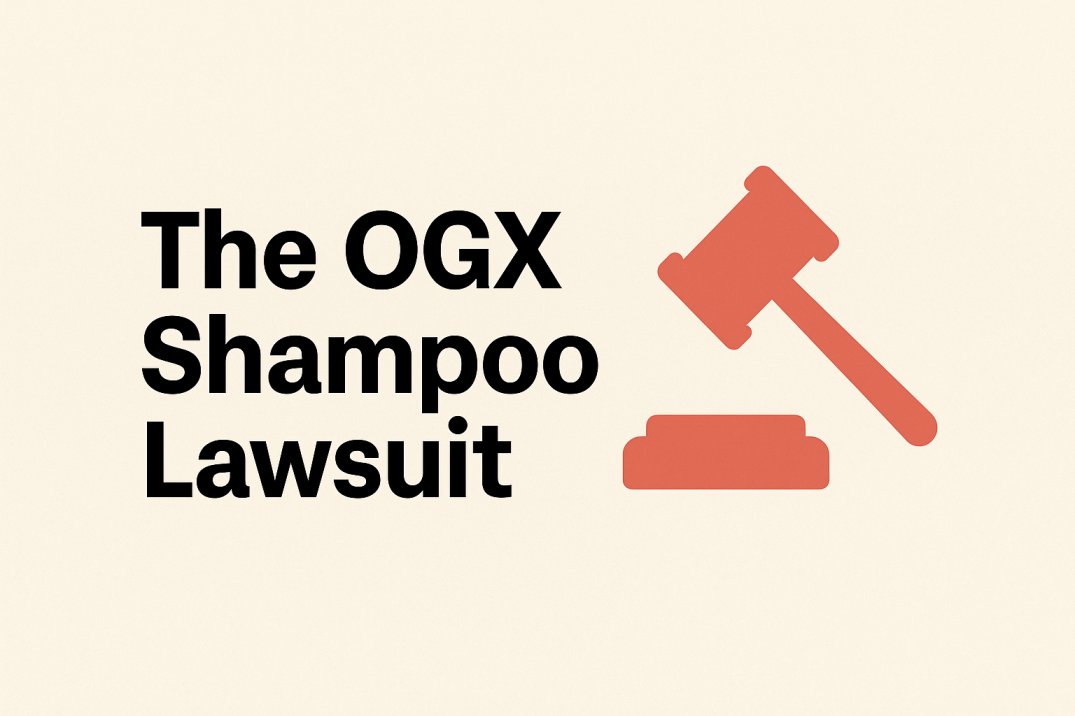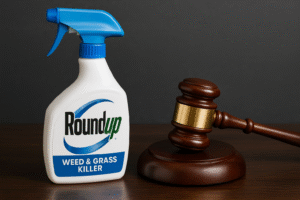Johnson & Johnson Consumer Inc face a growing lawsuit over its OGX shampoo and conditioner line. Consumer across the US say these hair care product caused unexpected hair loss scalp irritation and skin reaction. Many of them followed direction and used the products regularly. They did not expect any side effects.
The main issue center on an ingredient called DMDM hydantoin. This chemical act as a preservative but can release formaldehyde. Formaldehyde is a known human carcinogen. It has links to cancer allergic reaction and long term skin problem. Customer say the company failed to warn them. The bottle promoted healthy strong and smooth hair. The risk were hidden.
The legal complaints now accuse Johnson & Johnson of false advertising, misleading marketing, and using dangerous ingredients. They also argue that safer alternatives existed. The company ignored them and continued selling harmful formulas under a trusted brand name.
This article breaks down every detail of the OGX shampoo lawsuit. It explains the ingredients involved, the science behind the claims, and the specific products named in the case.
What Started the OGX Shampoo Lawsuit?
Johnson & Johnson and the OGX Brand
Johnson & Johnson is a major name in personal care. It bought Vogue International in 2016. That deal included OGX hair care products. The goal was to grow their presence in global beauty markets.
OGX shampoos claimed to restore damaged hair. Bottles showed natural oils and fruits. Customers trusted the brand. Many believed it was safe and nourishing.
What Make DMDM Hydantoin Dangerous
This chemical act as a preservative. It keeps products from growing bacteria. But it releases formaldehyde. That a known carcinogen.
Formaldehyde can cause scalp irritation allergic reaction and hair loss. Scientist raised these concern as early as 1987. Test showed even small amount can trigger skin problem.
A 2015 study showed that heat and time increase formaldehyde release. This made the issue worse for people using OGX products regularly.
Safer Options Were Available
Johnson & Johnson had access to better alternatives. These included:
-
Citric acid
-
Sorbic acid and potassium sorbate
-
Lavender oil
-
Grapefruit seed extract
-
Rosemary oil extract
These ingredients don’t pose the same risks. Other brands already use them. Johnson & Johnson chose not to switch for many OGX products.
What Are the Main Allegations?
The lawsuit says Johnson & Johnson misled buyers. OGX labels promised hydration, shine, and strength. They made the products sound clean and healthy.
But users didn’t expect side effects. No warnings appeared on the bottles. Johnson & Johnson also failed to issue alerts or recall products.
Legal claims include:
-
State Consumer Fraud Act violations
-
Illinois Consumer Fraud Act violations
-
Illinois Deceptive Trade Practices violations
-
Fraud
-
Unjust enrichment
Products Listed in the OGX Lawsuit
The lawsuit mentions many OGX products. All contain DMDM hydantoin. Here’s the full list:
-
OGX Biotin + Collagen Shampoo and Conditioner
-
OGX Argan Oil of Morocco Shampoo and Conditioner
-
OGX Keratin Oil Shampoo and Conditioner
-
OGX Pomegranate & Ginger Shampoo and Conditioner
-
OGX Nicole Guerriero limited editions (Midnight Kisses, Mistletoe Wishes, Ice Berry Queen)
-
OGX Extra Strength Argan Oil of Morocco Shampoo and Conditioner
-
OGX Brazilian Keratin Therapy Shampoo and Conditioner
-
OGX Kandee Johnson editions (Candy Gumdrop, Frosted Sugar Cookie, Sparkling Cider)
-
OGX Coconut Curls Shampoo and Conditioner
-
OGX Kukui Oil Conditioner
-
OGX Youth Enhancing Sake Essence Conditioner
Each product was sold without clear warnings.
Johnson & Johnson’s Response
Johnson & Johnson responded to public pressure in 2021. The company announced it would stop using DMDM hydantoin in its OGX product line. It also shared plan to reformulate the shampoo and conditioner using safer alternative. This move came after growing criticism and legal challenge.
Despite the announcement many customers remain disappointed. They feel the change came too late. Reports of hair damage had been building for years. People trusted the brand and expected better protection from harmful ingredients.
Some believe the company acted only after the lawsuit became public. Others say Johnson & Johnson failed to provide transparency. There were no warning labels. No public alerts. Customers learned about the risks only after experiencing them firsthand.
The brand’s reputation took a hit. Loyal users questioned the company’s commitment to safety. Even with reformulated product on the way trust in OGX remain low. Many consumer have already moved to other brand that offer cleaner ingredient conscious option.
Why This Lawsuit Matters
The OGX shampoo lawsuit highlight a bigger problem in the beauty industry. Customer rely on brand to tell the truth. They expect label to be clear honest and easy to understand. That did not happen in this case.
Many people used these products without knowing the risks. They trusted the marketing. They believed the formulas were safe. No one warned them about ingredients that could cause hair loss or irritation.
This lawsuit also shows the need for stronger rules in the personal care market. Brands should not wait for lawsuits before removing dangerous chemicals. Companies must take responsibility before harm happens—not after.
Consumer deserve to know what inside the product they use. They should not have to search through hidden ingredient list or rely on online complaint to find the truth.
Anyone who used OGX products and suffered hair damage may have a legal claim. Class action cases give consumers a voice. Legal teams are still gathering evidence and pushing forward.
Johnson & Johnson says they will reformulate the products. That may help fix the formulas, but rebuilding trust will take more than that. Many buyers have already moved on. Some won’t return.
This case reminds us all: trust must be earned—and protected.




